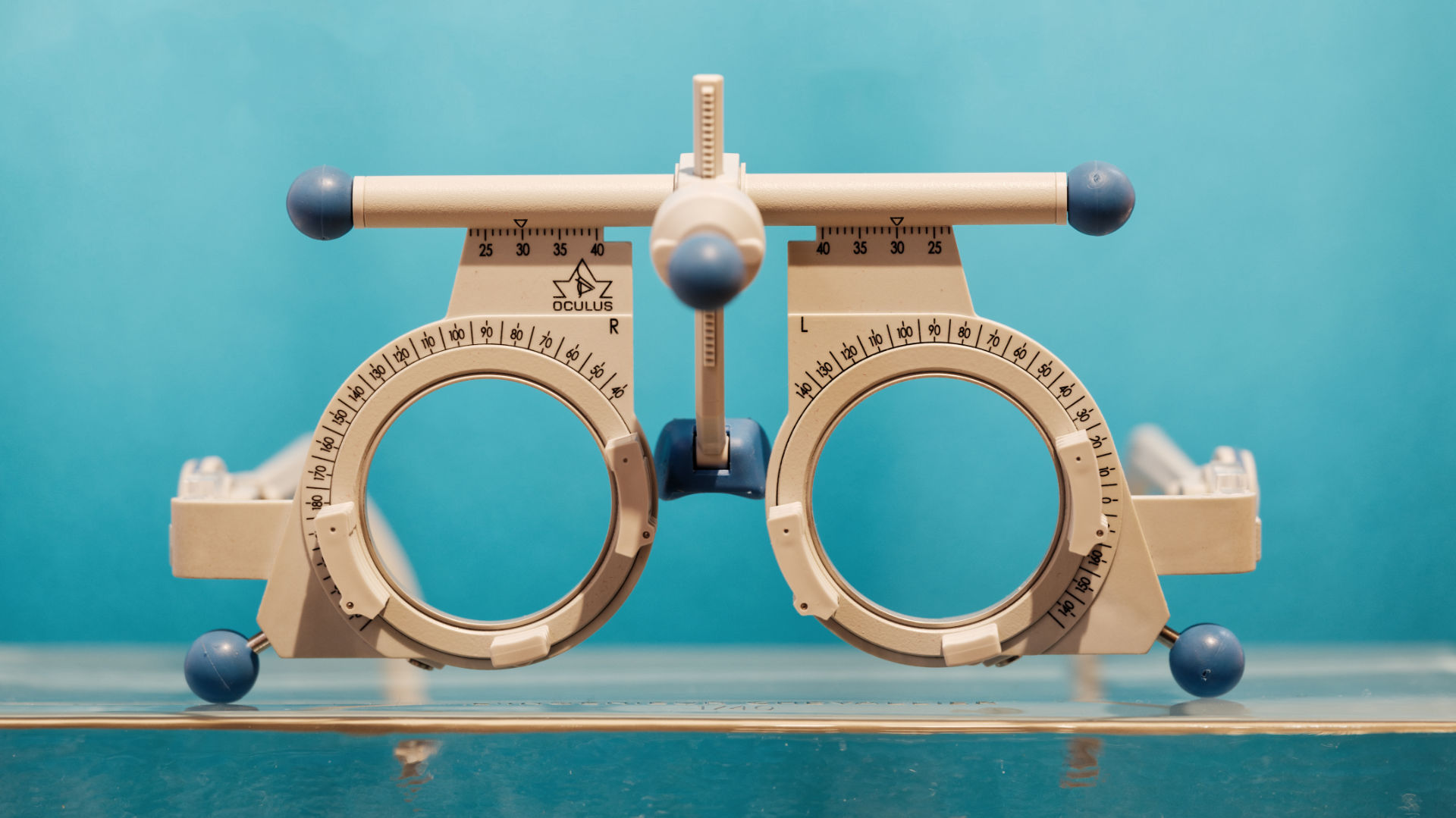
What are the different professions in optics and vision, as well as the training that leads to them?
At the heart of our daily lives, vision is undoubtedly one of our most precious senses. We perceive the world through our eyes, marveling at the beauty of the colors, shapes, and details around us.
In this article, we invite you to discover the world of optical professionals, the multiple facets of their professions and the training that leads to them. From the optician to the orthoptist, including the optometrist, the ophthalmologist, and the eyewear maker, you will understand the role that each of them plays in allowing us to see the world in high definition.

Overview of the different optical and vision professions
- Optician: this is a healthcare professional specializing in the advice and sale of visual correction devices, such as glasses and contact lenses.
- Eyeglass maker: the profession of eyeglass maker is closely linked to that of optician, but it is an artisan specialized in the design, manufacture, and adjustment of spectacle frames.
- Optometrist: health professional specializing in vision correction, he performs eye exams to detect and evaluate ametropia. In most European countries, he can prescribe glasses or contact lenses, but not in France where prescriptions are the preserve of ophthalmologists.
- Ophthalmologist: this time it is a doctor, specialized in the diagnosis, treatment, and surgery of eye diseases, such as laser vision correction or cataract surgery.
- Orthoptist: specialist in eye rehabilitation. It assesses visual failures and determines the possibilities for rehabilitation using a whole battery of tests.
- Technician-assembler: this professional installs corrective lenses in frames and ensures the maintenance of optical equipment. There are also other related professions in the optical field, such as lens manufacturers, salespeople specializing in the sale of optical equipment, researchers working on new optical technologies, and teachers or trainers in optics schools.

What training for which optics and vision professions?
Optician: BTS optician-eyewear maker // Bac +2
Two years to prepare for the BTS optician-eyewear maker, required to practice, possibly supplemented by a professional degree (1 year) to broaden your commercial or technical skills. The BTS optician-eyewear maker is accessible to any holder of a baccalaureate with a suitable specialty: general baccalaureate, STMG or STL technological baccalaureate, professional optical eyewear baccalaureate, etc.
Access on file, even tests and/or interviews.
Eyewear maker: BTS optician-eyewear maker // Bac +2
The BTS optician-eyewear maker, is also the way to become a spectacle maker. Since workshop training is not the most advanced part, you will continue to learn from experienced professionals. It is also possible to take design training, for example at an art or design school, to acquire the skills needed to design frames.
Optometrist: BTS optician-eyewear maker + license + master // Bac +5
If in France, the profession of optometrist is not regulated, the AOF, the main union of French optometrists, recognizes as optometrists professionals with a bac + 5 level. The classic path to access this level follows the BTS OL scheme, license, master, European diploma (list of training available on the AOF website).
Orthoptist: Orthoptist capacity certificate // Bac +3 Or Certificate + DU // Bac +5
You must obtain the orthoptist capacity certificate, which is prepared in 3 years (preferably after a scientific baccalaureate) in one of the 16 training institutes attached to a UFR of medicine (list of institutes available on the website ” the page of orthoptists in France”). The ministry sets each year the number of places in the 1st year of preparatory studies for the orthoptist DE (509 for the year 2022-2023).
Registration on Parcoursup.
Access based on file and interview or after an aptitude exam.
After obtaining the certificate, it is possible to continue your studies to acquire new skills or improve your initial skills. There are non-degree professional training courses, generally provided by private organizations (AFO, UNRIO, etc.) as well as additional university diploma training courses.
- DU Exploration of visual function in Paris,
- DU Rehabilitation of visual handicap and “Low Vision” in Paris,
- DU Low Vision in Lyon,
- DU Strabology in Nantes,
- DU Neuro-Ophthalmology in Paris,
- DU Clinical Posturology in Marseille, Toulouse, Paris and Grenoble, Introduction to ophthalmology techniques in Paris,
- DU Training for Clinical Research Assistants in Paris, Vision Sciences in Lille,
- DU Perception, Action and Learning Disorders in Dijon, Language, Motor Skills, Learning Disorders in Children in Toulouse,
- DU Neuropsychopathology of School Learning in Lyon, Vision, and disability in children in Paris
- Licenses in health and social sciences and those in education sciences are directly accessible to orthoptists.
Recently, it has been possible to register (sometimes subject to a skills exam, etc.) for a professional optical professional license (Paris XI, in Marseille, Saint Etienne, Nîmes). - Master’s degree in vision sciences (University of Paris Saclay.
More details on the masters: www.trouvermonmaster.gouv.fr
Ophthalmologist: Medicine + specialization // Bac +10 to +11
To become an ophthalmologist, it is necessary to complete medical studies, which includes training in general medicine (6 years) followed by specialization in ophthalmology (4 to 5 years).
Technician – assembler: Bac Pro optical eyewear // Bac
At the end of the 9th grade, the Bac Pro optical eyewear allowing you to become a technician has the objective of professional integration. It is accessible with a very good record or a mention in the exam and can allow access to the BTS OL.
It is important to note that training and diplomas may vary, and it is recommended to check with relevant educational establishments and organizations for up-to-date information on training specific to each optical profession.

What are the subjects covered in the different training leading to optical professions?
The subjects covered in the different courses linked to optics and vision professions may vary slightly. However, here is a general list of subjects commonly taught in these courses in France:
| CAP Optique Lunetterie | BTS Opticien-Lunetier | Diplôme d’État d’Optométrie | Médecine |
| Stock management and supply | Anatomy of the eye | Anatomy and physiology of the eye | Anatomy |
| Assembly of lenses and frames | Communication and customer relations | Ocular biomechanics | Biochemistry |
| Measuring and adapting glasses | Commercial management and business management | Contactology | Surgery |
| Customer relations and sales techniques | Marketing and sales in optics | Management and organization of the optometry practice | Medical imaging |
| Physical and chemical sciences applied to optics | Assembly of lenses and frames | Geometric and physical optics | Microbiology |
| Materials and processing technology | Geometric optics | Clinical optometry | General pathology |
| Optometry | Ocular pathology | Special pathology (including ocular pathology) | |
| Physics of optics | Pharmacology | Pharmacology | |
| Materials and processing technology | Physiology | ||
| Measuring and fitting glasses | Specialization in ophthalmology | ||
| Study of optical systems | Diagnostic technique |
These lists are not exhaustive and may vary by specific institution and program. It is recommended to consult the study plans of the courses concerned to obtain more detailed information on the subjects taught.
In conclusion, working in optics allows you to benefit from a diversity of professional paths, enriching human interactions, stable job prospects, constant technological innovations and even entrepreneurship possibilities. Whether you are attracted to science, technology, helping relationships or aesthetics, there is a career in optics that will match your aspirations.
P.S.:
Want to read other articles from the Gazette de L’Ingénieur Chevallier? It’s this way.
Want to know more about the history of L’Ingénieur Chevallier? It’s over there.